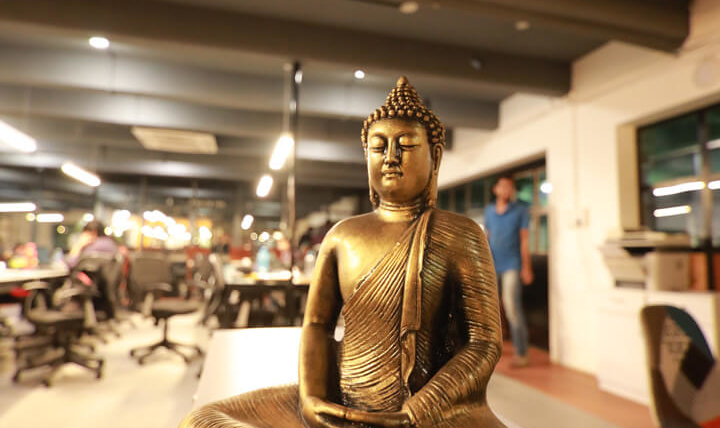Over two-thirds of employees are experiencing burnout symptoms while working from home, a recent survey state.
Job burnout is a real thing and can happen to any of us! It’s the state of mind that comes with long-term, unresolved stress, and it can negatively affect your work and your life. But before we go further with details on how to manage Job Burnout. Firstly, we need to know what burnout is.
What is burnout and what are its causes?
Burnout is a state of emotional, physical, and mental exhaustion caused by excessive and prolonged stress. It occurs when you feel overwhelmed, physically, and emotionally drained, and unable to meet constant demands. As the stress continues, you begin to lose the interest and motivation that led you to take on the role in the first place. Burnout can also do long-term changes to your body that make you prone to illnesses like colds and flu. It can also reduce productivity and sap your energy, leaving you feeling increasingly hopeless, cynical, and resentful. Eventually, you may feel like you have nothing more to give. The effects of burnout are that it can spill over into every area of life—including your home, work, and social life. Because of its consequences, it’s important to deal with burnout right away.

It used to be that working remotely was a perk. These days it’s about survival and things haven’t been easy. Over two-thirds of employees are experiencing burnout symptoms while working from home, a recent survey state. work from home may have offered you a break from the commute, office structure, and your regular daily routine for the past few months. But the mental break from work, as well as technology, is equally necessary. Job burnout is a special type of work-related stress that also involves a sense of reduced accomplishment and loss of personal identity. “Burnout” isn’t a medical diagnosis. Some experts think that other conditions, such as depression, are behind burnout. Some research suggests that people who experience symptoms of job burnout don’t believe their jobs are the main reason. Consider how to know if you’ve got job burnout and what you can do about it.
Symptoms or Signs of job burnout
It actually might be difficult to diagnose oneself when it comes to job burnout because we don’t know how to decide if we are experiencing burnout or not. One of the easiest ways to know if you’re experiencing burnout is to ask ourselves the following questions:
- Have you become cynical or critical at work?
- Do you have to drag yourself to work?
- Have you become irritable or impatient with co-workers, customers, or clients?
- Do you lack the energy to be consistently productive?
- Have your sleep habits changed or do you have trouble sleeping?
- Do you lack satisfaction from your achievements?
- Are you troubled by unexplained headaches, stomach or bowel problems, or other physical complaints?
- Do you find it hard to concentrate?
If you answered yes to a few or all of these questions, you might be experiencing job burnout. Of course, there could be a lot of other explanations for these sorts of aches, pains, and issues as well. But particularly if you’re experiencing them along with the emotional changes discussed above, they might serve as a physical indicator of your burnt-out state.
Handling job burnout
Try to take action. To get started:
Seek support:
Whether you reach out to co-workers, friends, or loved ones, support and collaboration might help you cope. Opening up won’t make you a burden to others. In fact, most friends and loved ones will be flattered that you trust them enough to confide in them, and it will only strengthen your friendship. Try not to think about what’s burning you out and make the time you spend with loved one’s positive and enjoyable.
Re-frame the way you look at work.
Focus on aspects of the job that you do enjoy, even if it’s just chatting with your coworkers at lunch. Changing your attitude towards your job can help you regain a sense of purpose and control. Having strong ties in the workplace can help reduce monotony and counter the effects of burnout. If burnout seems inevitable, try to take a complete break from work.
Exercise or Try a relaxing activity .
Explore programs that can help with stress such as yoga or meditation. Regular physical activity can also help you to better deal with stress. It can also take your mind off work. (Click here to read about the mental health benefits of exercise)
Get some sleep.
Sleep restores well-being and helps protect your health. A good nights’ sleep is always a sign for a good start of the day. If you’re not able to sleep, consider meditating or a warm shower before bed. Sticking to a regular sleep schedule also can help you get rid of insomnia symptoms.

Conclusion
When you find yourself so preoccupied with work that you forget you have a life outside your professional life, give some of these above-mentioned tips a go. They might sound simple but the most complex sounding problems always have simple solutions. All one has to do is listen to what your body and mind are trying to tell you. You’ll go from burned out to fanning the flames.
Leave your thoughts in the comments section.


